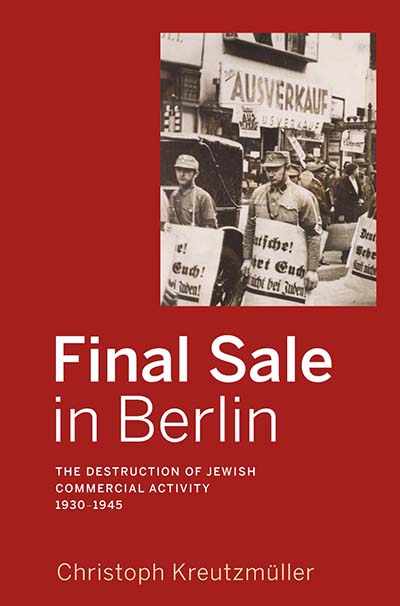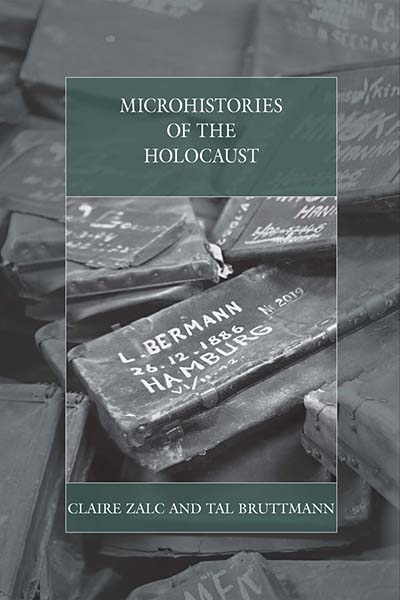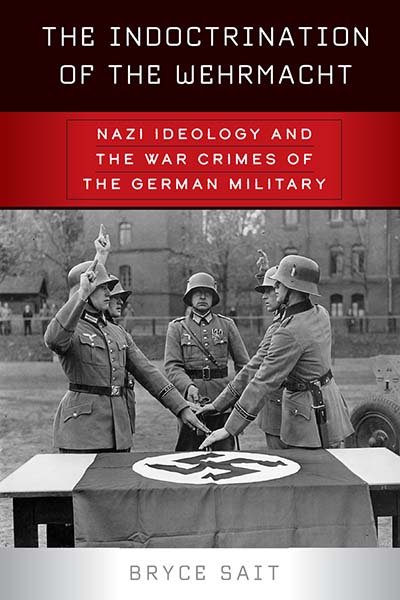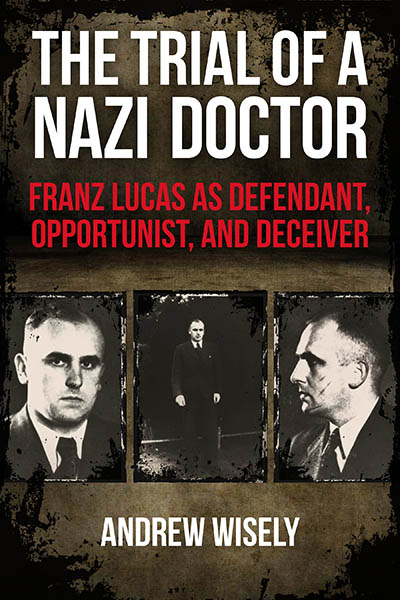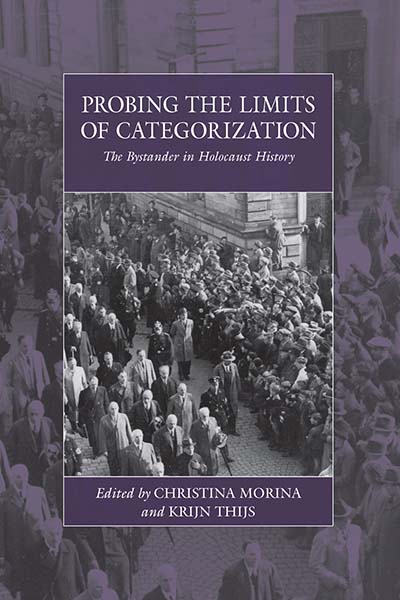
Series
Volume 27
War and Genocide
Email Newsletters
Sign up for our email newsletters to get customized updates on new Berghahn publications.
Probing the Limits of Categorization
The Bystander in Holocaust History
Edited by Christina Morina and Krijn Thijs
382 pages, bibliog., index
ISBN 978-1-78920-093-5 $150.00/£115.00 / Hb / Published (November 2018)
ISBN 978-1-78920-811-5 $39.95/£31.95 / Pb / Published (December 2020)
eISBN 978-1-78920-094-2 eBook
Reviews
“Although not all Central and Eastern European countries are discussed in this work…the volume offers great insight into the bystander position and how it can be interpreted in different societies, cultures, and historical situations… This pioneering excellent book should encourage new – hopefully, transnational comparative – studies and contribute to further develop Bystander Studies as new field of Holocaust and Genocide Studies.” • Journal of Contemporary History
“Scholars interested in the conceptual and research methodological approaches to bystanders will find great sources of research inspiration in a number of chapters… This rich, multidimensional book makes a significant contribution to our understanding of the limits and difficulties of categorising bystanders. It advances the field and, crucially, provides a roadmap for future research into this complex, unsettling figure, not just during the Holocaust, but also beyond.” • BMGN Low Countries Historical Review
“This collection stands as an extraordinary and incisive contribution to understanding the processes of extreme violence. Probing the Limits of Categorization is an important book that promises to provoke fruitful discussion.” • Peter Fritzsche, University of Illinois and author of An Iron Wind: Europe under Hitler
“With its disciplinarily diverse contributions, this book offers a captivating and discerning overview of the ‘bystander’ in recent Holocaust studies, rethinking questions that have intrigued historians of the Holocaust for decades. This volume is a thought-provoking and important contribution to the field.” • Caroline Mezger, Center for Holocaust Studies, Institute for Contemporary History
Description
Of the three categories that Raul Hilberg developed in his analysis of the Holocaust—perpetrators, victims, and bystanders—it is the last that is the broadest and most difficult to pinpoint. Described by Hilberg as those who were “once a part of this history,” bystanders present unique challenges for those seeking to understand the decisions, attitudes, and self-understanding of historical actors who were neither obviously the instigators nor the targets of Nazi crimes. Combining historiographical, conceptual, and empirical perspectives on the bystander, the case studies in this book provide powerful insights into the complex social processes that accompany state-sponsored genocidal violence.
Christina Morina is Professor of Contemporary History at the University of Bielefeld. From 2015 to 2019, she was DAAD Visiting Assistant Professor at the Duitsland Instituut Amsterdam. She has also worked as lecturer at the University of Jena and was a research fellow at the Jena Center 20th Century History. Her dissertation Legacies of Stalingrad: Remembering the Eastern Front War in Germany since 1945 appeared in 2011. Since then, she has published a number of books and articles on modern German and European political-intellectual history and memory culture, among them Die Erfindung des Marxismus. Wie eine Idee die Welt eroberte (2017, forthcoming in English in 2022), and Zur rechten Zeit. Wider die Rückkehr des Nationalismus (2019, with N. Frei, F. Maubach and M. Tändler).
Krijn Thijs is senior researcher at the German Studies Institute Amsterdam and lecturer at Amsterdam University. He has published on political history, memory cultures and historiography in Germany and the Netherlands. In 2006, he received his PhD from Amsterdam Free University. The dissertation about Berlin master narratives in the 20th century was published by Böhlau Verlag as Drei Geschichten, eine Stadt. Die Berliner Stadtjubiläen 1937 und 1987 (2008). Currently, he is working on a book synthesis about professional and biographical upheavals in East German Historiography after 1989. Thijs also publishes on the experiences of Wehrmacht soldiers in the occupied Netherlands and on controversies in Dutch historiography. He is co-founder of the Dutch-German History Workshop.
Subject: Genocide HistoryJewish StudiesHistory: 20th Century to Present
Area: Europe
Contents
Download ToC (PDF)

